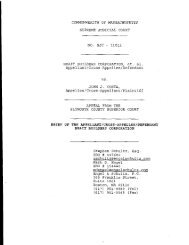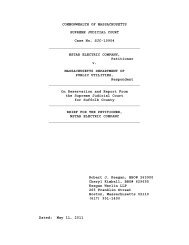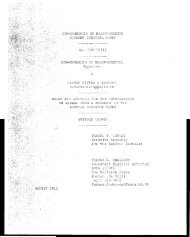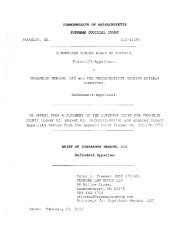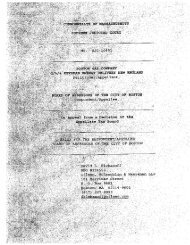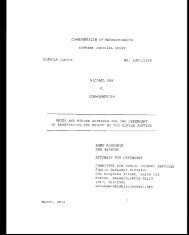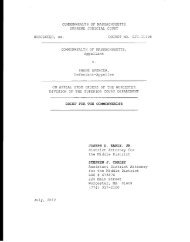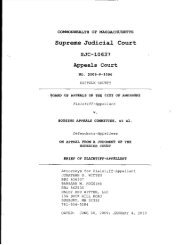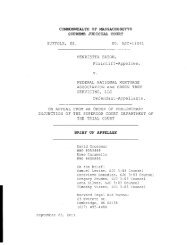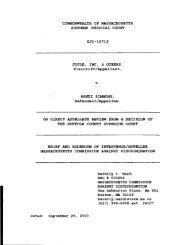463 Mass. 353 - Appellee Commonwealth Brief - Mass Cases
463 Mass. 353 - Appellee Commonwealth Brief - Mass Cases
463 Mass. 353 - Appellee Commonwealth Brief - Mass Cases
Create successful ePaper yourself
Turn your PDF publications into a flip-book with our unique Google optimized e-Paper software.
etween the defendants' drug dealing activity and their<br />
residence. (pages 16-21) .<br />
II. The legal standards are set out. (pages 22-<br />
24) This Court has consistently applied all of the<br />
"Degraca factors" to determine whether a Melendez-Diaz<br />
error was harmless, including "the premise of the<br />
defense" factor and the "whether the erroneously<br />
admitted evidence was merely cumulative of properiy<br />
admitted evidence" factor. (pages 24-27) The<br />
underlying claim of prejudice associated with "tainted<br />
evidence," which Ronald Mendes now argues requires that<br />
no evidence admitted in the defense case-in-chief be<br />
considered in the harmless error calculus, is already<br />
built into our traditional harmless error<br />
jurisprudence. (pages 27-38) Applying those factors,<br />
the admission of the certificates of analysis for the<br />
drugs was harmless error. (pages 38-41)<br />
III. Evidence concerning the content of phone<br />
calls that were placed to the defendants' cellular<br />
phones did not create a substantial risk of a<br />
miscarriage of justice or violate the wiretap statute,<br />
G. L. c. 272, § 99. (pages 43-46) The testimony was<br />
not offered for the truth of the statements that were<br />
made by the callers, but to establish that the<br />
15



